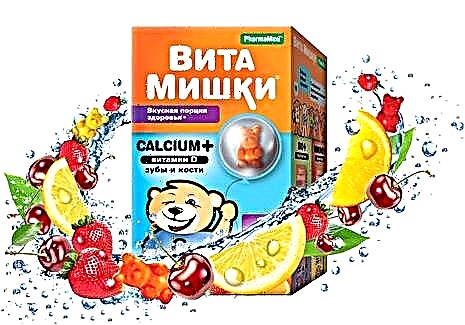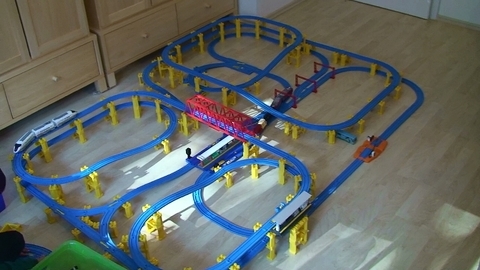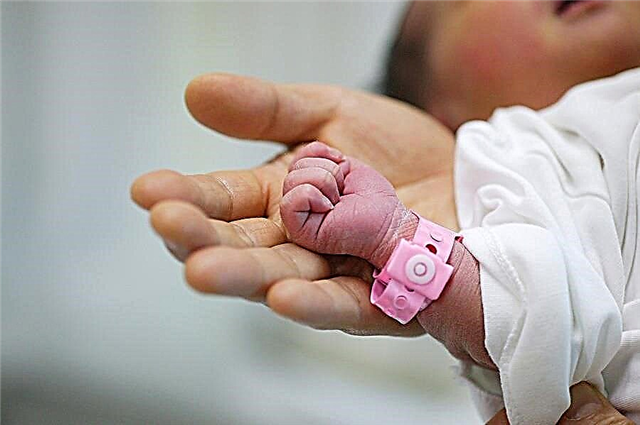The body of a newborn is not yet ripe, therefore it functions differently from that of adults. For example, a baby spits up curdled milk. This may be a variant of the norm or a sign of pathology.

Mom with baby
Features of the infant digestive tract
The main thing that the baby's digestive system should be ready for is sucking and digesting milk. For this, it has a number of differences:
- Small mouth;
- Big tongue;
- Short esophagus;
- Horizontally located stomach.
All this leads to the fact that the baby's nutrition is in a special way. Not the way his parents eat and digest food.
Why does a baby spit up curdled milk
Here are the reasons why a child may still regurgitate:
- Change in body position. If the baby was lying, eating, and after feeding it was abruptly turned vertically, it will almost certainly vomit.
- Binge eating. This often happens with those babies whose mothers have abundant lactation. Too much milk comes in, the stomach of the crumbs is already full, but the feeling of satiety has not yet come. As a result, the excess spits up.
- Colic, constipation and other digestive problems. The baby strains, strains the tummy, the pressure on the stomach increases.

The baby cries because of colic
- Improper attachment. A child sometimes spits up curd after breastfeeding, if he was incorrectly attached to the breast: when he ate, he also swallowed air. Now its bubbles push food back.
- Too large nipple on the bottle. Children, too, then eat more than necessary for saturation, overeat.
- Neurological diseases, problems with the gastrointestinal tract. What all mothers are afraid of.
- Abrupt transition to milk mixture. And it is not so important whether the baby was artificially or naturally fed. Sudden replacement of the mixture, which is not digested anyway worse (than the already familiar food), which leads to unpleasant consequences.
- Unsuitable mixture. In some cases, artificial infant nutrition is not suitable for children, then it must be replaced (gradually).
- Age up to 3-6 months. In this interval, the baby begins to actively move: roll over, sit down. Then the digestive tract will begin to change, strengthen. Until then, regurgitation can happen every day.
The baby suddenly spits up curdled, curdled milk an hour after a meal or 5 minutes later - with liquid. This is all a variant of the norm. Curd is formed during the digestion of food in the stomach. Therefore, when regurgitating, not immediately, but after some time, its appearance is natural. As a rule, most often belching occurs in the first half hour after eating, but sometimes after a longer period of time.
Norms and deviations
In general, regurgitation as such is a variant of the norm. Up to three months, they happen daily. Due to the structure of the gastrointestinal tract, food can pass from the stomach back into the esophagus and be excreted through the mouth. The norm is the volume of regurgitated milk or a mixture of no more than 1 teaspoon at a time for a baby up to two months old and no more than 1 tablespoon for toddlers older than this period.

Newborn spat up
Up to about six months, the child spits up curdled milk (or regular, without lumps) up to 8 times a day. This is also natural if the volume norms are not exceeded. Belching may have a slightly sour smell (after all, it mixes with gastric acid), white or slightly yellowish color.
In some cases, the mother needs to pay attention to the fact that something is wrong. This happens when:
- The volume of regurgitated milk or mixture is more than 2 tablespoons, and this is repeated. A newborn baby will regurgitate almost everything it has eaten.
- The baby spits up with a fountain, that is, abruptly, abundantly. In fact, this is no longer spitting up, but vomiting.
- There are traces of blood in the curdled milk.
- The baby spits up a lot (more than expected) and often cries after that. Also gains weight poorly, wakes up often, restless. Perhaps his esophagus is irritated.
In any of these cases, you should contact your pediatrician. Perhaps he will refer to a gastroenterologist, surgeon, neurologist.
Spitting up with a fountain can be a conditional norm when it acts as a protective reaction of the body. This happens with a sharp rise in temperature in an infant. Often, children vomit violently in this case. Food gives heat, which the body does not need at the moment, so a person may start to feel sick.

The child spat out like a fountain
Attention! If there is mucus, greenish bile in the vomit, you should immediately call an ambulance. This could be a symptom of a blockage in your intestines. With this diagnosis, the child requires emergency medical assistance and, possibly, immediate surgery.
Is it dangerous to regurgitate curdled milk
In itself, regurgitation is not dangerous. Many inexperienced mothers believe that this is a sign that the food is not absorbed by the baby. Often this provokes a switch to formula due to assumptions that mother's milk is "bad".
Such opinions are wrong. Regurgitation is a physiological, natural process, if it does not cross the border of the norm. It can become dangerous because of the wrong attitude of parents towards him. For instance:
- The newborn spits up milk (more often curdled) even in sleep. Therefore, it is better not to put children to sleep on their backs. If the baby lies on its side, the belching will not get into its nose, it will not interfere with breathing.

The child spat up in a dream
- Trying to get rid of regurgitation, drastically changing the mixture is harmful, as well as suddenly switching to IV. Before such a decision, you must definitely come to the doctor for an appointment and discuss everything.
It is generally impossible to close your eyes to regurgitation. Parents should control their volume, frequency, visit a doctor as planned. If a child spits up curd constantly, it can be a dangerous symptom of problems such as pyloric stenosis and pylorospasm.
Throughout the gastrointestinal tract are "gateways" - sphincters. These are muscles tightly compressed into a ring, opening only from time to time. For example, this sphincter is located between the stomach and intestines. Its task is to hold food during digestion, and then skip, push it into the duodenum.
With pylorospasm, the digested is not completely thrown into the intestine. Some part of it remains in the stomach. With pyloric stenosis, the bulk of food does not enter the intestines. As a result, just starting to eat, the child is already overeating - the stomach is already full and may burp. A similar pathology is distinguished by a thick dense curd mass and a sharp strong sour smell. Most often, problems appear before the month of the baby's life, rarely later.
Note! Pylorospasm is treated with medication. Pyloric stenosis - only operatively. Treatment can only be prescribed by a doctor.
How to help your child spit up less often
If the baby is sick, then only a qualified specialist will help him: pediatrician, surgeon, neurologist. If he is healthy, then in the power of his parents to help him, to reduce the frequency of regurgitation. For this:
- You need to carry the baby in a column after feeding. Spread the diaper on your shoulder and put the baby on your chest so that its head is slightly in front of the belly, that is, at a slight angle. So you need to walk, swing. From the movement, air bubbles will come out. Since the child will not be horizontal, but vertical, the food will remain inside.

Carrying a newborn in a column
- Raise the head of the mattress in the crib higher. Here the principle is not in the advice above - the gases will still come out. If the head is taller than the legs, there is a greater chance that the milk will remain in the belly rather than burping.
- On the recommendation of a doctor, they switch to an antireflux mixture. It is thicker than usual, therefore it is not so easy to burp.
- Do not feed a child when he is in an uneven position, that is, curled up in a ball or in a car seat. Some of the food will simply not reach the stomach.
- They plan the daily routine so that immediately after eating the baby does not have to move a lot. This can also include a trip by car.
- They feed in a calm, quiet place, and also do not bring the baby to a state of severe hunger. The calmer he eats, the less chance of swallowing air.
- Monitor the amount of food. If the baby is breastfed, then they try to apply it to the breast more often (so the feeling of hunger will not be so acute by the time of feeding, the baby will eat more slowly). If on artificial - reduce the number of portions.
Regurgitation is the norm, if with it the little person feels good, sleeps normally and gains weight according to the norms. In case of any concern on this topic, you should definitely consult a doctor. This can be a symptom of a problem and are easier to fix if detected early.



